Issue #24 - Lembre-se Sempre: Os Problemas Não Desaparecem
Olá pessoal
Nos últimos dias reli The Road Less Traveled, de M. Scott Peck, e a frase “Problems do not go away. They must be worked through” voltou a ecoar comigo e é o fio condutor desta edição. Falo sobre por que problemas ignorados tendem a se transformar em crises maiores e compartilho dicas práticas para identificar, enfrentar e aprender com as falhas. Também trago o que mais tem me chamado a atenção: a chegada do robô Figure 3 e o impacto da robótica doméstica; o caso da Deloitte que devolveu recursos após erros de IA; e as novidades do PMI Summit 2025, onde estarei presente. Apresento, ainda, os resultados da nossa pesquisa global sobre IA em gerenciamento de projetos, informações sobre a Masterclass de dezembro (não perca!) e o lançamento dos meus cursos em português no LinkedIn. Por fim, convido você a me acompanhar nas redes sociais, onde compartilho bastidores, vídeos e reflexões exclusivas sobre liderança, IA e o futuro dos projetos.
Boa leitura!
Ricardo
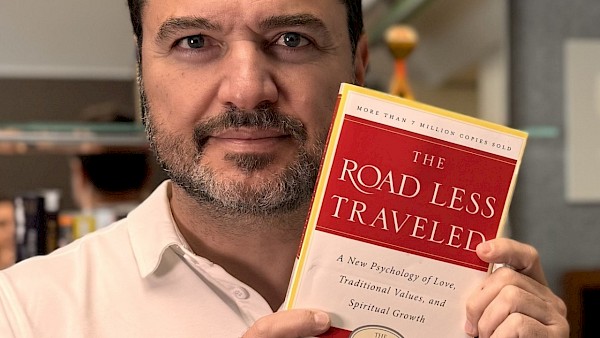
In This Issue
- Figure 3 Robot: The Humanoid Robot Redefining the Future of Home Living
- Deloitte Repays Government After AI Errors in $440K Report
- PMI Summit 2025, here I go!
- Results are finally out: global research survey on AI in project management
- Do not Miss our December AI Masterclass!!
- Follow me on Social Media: LinkedIn, Instagram and YouTube
Problems Don’t Disappear — They Mutate (Usually for the Worse)
In the past few days, I started rereading a book that profoundly shaped my life and the projects I’ve been working on: The Road Less Traveled by M. Scott Peck. Despite being a book about psychology and life, it has extremely valuable points for our work in projects.
Right in its opening, Peck writes a line that has stayed with me since the first time I read it:
“Problems do not go away. They must be worked through or else they remain, forever a barrier to the growth and development…”
This idea has been echoing in my mind—and it’s what I want to share with you in this edition.
In projects, it’s common to believe that time will solve everything.
That we just need to wait for the next status meeting, or that maybe the client will forget.
But time rarely fixes problems —most of the time, it magnifies them.
Ignored issues grow silently. A slight misalignment today becomes rework tomorrow. An unanswered email becomes a delay. An unspoken discomfort becomes a conflict.
The truth is: problems don’t vanish when you stop talking about them. They simply become unmanageable.
I call this the illusion of: “It will resolve itself.” This is one of the most common traps: believing that silence equals prudence.
Many project managers confuse hope with strategy.
Pretending a problem doesn’t exist creates a false sense of control. But what you avoid today will meet you again. Probably larger, costlier, and more urgent.
The first step is simple yet powerful: accept that the problem exists. Without drama or blame, just recognition. Denial doesn’t eliminate risk; it only hides it until it’s too late. Mature projects aren’t those with fewer problems, but those that identify and address them early.
“Problems don’t shrink when hidden. They just become more expensive to solve.”
What I’ve learned over the years is that behind every problem that's been avoided lies fear. Fear of confrontation, fear of uncertainty, fear of losing control. We often disguise avoidance as patience or diplomacy, but deep down, it’s hesitation to face discomfort.
In project management, this behavior spreads like wildfire. One person stays silent in a meeting, another assumes the silence means alignment, and soon the whole team is operating on false assumptions. Avoidance becomes culture. And culture defines outcomes.
When a team learns that problems are better left unspoken, creativity dies. People stop flagging risks, innovation slows, trust erodes. The silence that once felt safe becomes the very thing that endangers the project.
Healthy teams understand that conflict is not chaos. It’s a sign of engagement. A meeting filled with honest disagreement is infinitely more productive than one filled with polite indifference. Every unresolved problem accumulates interest, just like financial debt. What starts as a small oversight soon compounds into a costly issue that consumes time, trust, and morale.
I’ve seen small misunderstandings between teams turn into full-blown conflicts simply because nobody wanted to have a hard conversation early. The price of silence is always paid later — with interest.
True leadership begins not with control, but with awareness.
When you train yourself to see problems as feedback rather than failure, your entire relationship with uncertainty changes.
A great project manager doesn’t pretend everything is fine; they stay curious about what might not be. They listen between the lines, notice hesitation, and ask questions others avoid. The courage to address what’s uncomfortable is often what saves a project from collapse. When something goes wrong, our instinct is to react quickly, to fix the visible symptom.
But mature leaders pause to reflect before acting. They ask: What is this problem really telling us? What system, habit, or assumption allowed it to exist?
Every issue is feedback, a signal pointing to something deeper in how we work or communicate. And, in this sense, I gathered some practical tips for dealing with problems in projects:
- Identify early — create safe spaces where your team can speak openly.
- Accept reality — if something went wrong, acknowledge it quickly.
- Communicate clearly — ambiguity fuels chaos.
- Seek causes, not culprits — use simple tools like the 5 Whys.
- Document and learn — every problem is a lesson in disguise.
- Stay calm — panic never solved anything; it only makes things worse.
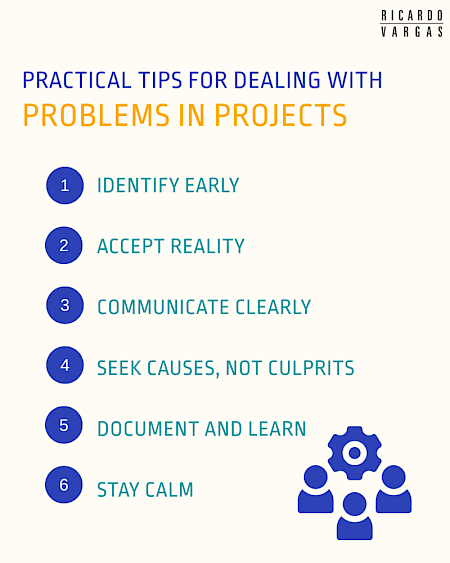
And also: stay curious. Curiosity is the antidote to defensiveness.
When something goes wrong, don’t rush to assign blame. Instead, ask: “What made this the logical outcome of our current system?”. Curiosity keeps the ego quiet and the mind open. It turns every challenge into a case study in how to build better solutions.
Because the truth is, managing problems is not just about fixing what’s broken, it’s about strengthening the system so it doesn’t break the same way again.
The goal isn’t zero problems; the goal is faster recovery, deeper learning, and stronger collaboration.
Remember that problems are not interruptions to the work — they are the work. They are not interruptions to progress, they are progress, disguised as discomfort.
Every challenge, every unexpected twist, is a test of how we think, collaborate, and adapt. When you approach issues not as threats but as teachers, you turn every setback into progress.
At the end of the day, managing projects is managing problems. If everything were predictable, there would be no need for project managers.
What separates a good leader from a great one is how they handle discomfort—how they face problems instead of avoiding them.
“The true test of a project manager isn’t what they do when everything goes right, but how they react when everything goes wrong.”
Professional and personal maturity begins when we stop running from problems and start facing them head-on.
Because leadership isn’t about preventing chaos or having full control, it’s about presence. It’s the ability to guide others and to stay calm in uncertainty. To hold space for others when things unravel, and to turn pressure into clarity.
When we embrace problems as inevitable companions on the road to progress, we no longer fear them. We learn from them.
Every issue becomes a mirror reflecting our blind spots, our assumptions, our limits. And through that reflection, both the project and the people grow.
The projects that thrive aren’t the ones without problems, but the ones where problems are seen, named, and transformed into growth.
What Has Been on My Radar Recently?
Figure 3: The Humanoid Robot Redefining the Future of Home Living
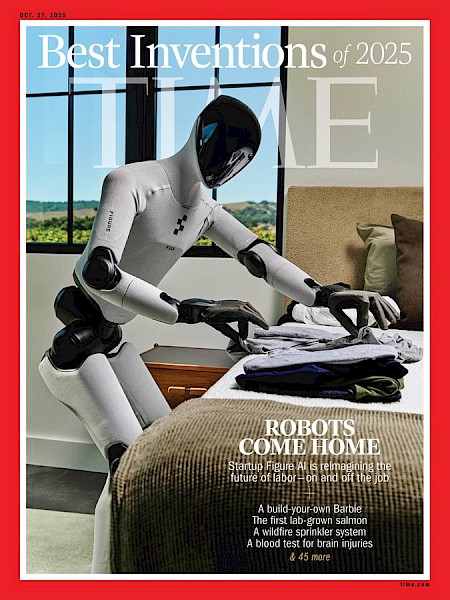
TIME Magazine has just revealed its list of the Top 300 Best Inventions of 2025, and among the most exciting highlights is the Figure 3, a humanoid robot that promises to transform the way we live and interact with technology.
In the robotics category, Figure 3 stands out as an intelligent household assistant, capable of performing complex tasks, understanding natural language, and adapting to the user’s needs. Its lifelike movements and human-like expressions make it not just functional, but almost relatable.
Seeing this creation recognized by TIME is a clear sign that we are entering a new era. One where artificial intelligence takes physical form, becoming part of our homes and daily routines.
Personally, I see Figure 3 as a true milestone. Watching a robot with such levels of autonomy, emotional simulation, and AI integration feels like witnessing the beginning of a new kind of coexistence between humans and machines.
The future that once felt distant is now standing right in front of us — and it can even lend a hand.
Watch the full video of the presentation, here:
Deloitte Repays Government After AI Errors in $440K Report
Deloitte has agreed to refund part of a $440,000 contract to the Australian government after admitting it used generative AI (GPT-4o) to help produce a report that contained multiple errors and false references.
The report, commissioned by the Department of Employment and Workplace Relations (DEWR) in late 2024, was meant to review a welfare compliance system. However, it was later found to include AI “hallucinations” — inaccurate citations and made-up sources — likely caused by overreliance on AI tools.
Although Deloitte assured that the main findings and recommendations remain valid, the firm has faced criticism for lack of transparency and quality control, with one senator saying Deloitte might have a “human intelligence problem.”
The incident highlights a growing challenge in the professional use of AI: while AI tools can speed up work, unchecked automation risks undermining accuracy, accountability, and trust — especially in government and policy reporting.
AI Tools and Their Applications in Project Management
Over the past few months, I’ve dedicated significant time to studying, experimenting with, and testing a wide range of Artificial Intelligence tools applied to project management. The experience has been nothing short of remarkable.
From Agentic AI to advanced ChatGPT configurations, the outcomes far exceeded my expectations. They weren’t perfect—but they came impressively close.
These results clearly show how fast AI and related technologies are evolving—and how essential it is for us to stay aware and engaged.
To help others grasp the potential of these tools, I’ve created a video series on my YouTube channel and LinkedIn showcasing platforms such as Manus, Genspark, Gamma, Napkin, ChatGPT Study Mode, Notebook LM, ChatGPT Projects, and reasoning models.
You can access the full playlist through the link below—more videos are on the way.
Quick Announcements
New Course Release on LinkedIn Learning
I am thrilled to announce that my new LinkedIn Learning course, "Crash Course in Recovering Troubled Projects," is now live on LinkedIn in both Portuguese and English.
You can find both courses in the links below.
I also decided to do a LinkedIn Learning Office Hours to discuss the course's main topics, including strategies for recovering troubled projects, and answer students' questions.
Mark your calendars for October 27th at 10:00 AM ET (11:00 Brazil time and 14:00 Lisbon/London time). You can register for the event here (LinkedIn page).
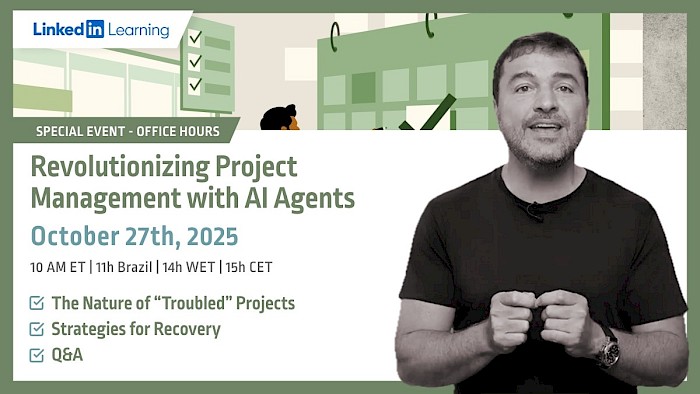
PMI Summit 2025, here I go!
For the 28th year in a row, I’ll be attending the PMI Summit 2025, this time in Phoenix, Arizona!
Since my first congress back in 1998 in Long Beach, I haven’t missed a single one and every edition feels just as special.
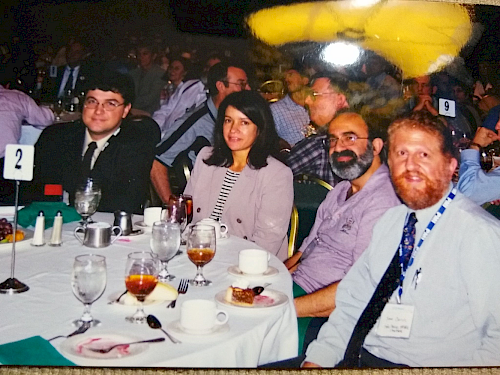
PMI 1998
It’s always a huge honor and a real joy to take part, reconnect with so many friends, and stay up to date with the latest announcements and trends from PMI.
As always, I plan to share live updates directly from the Summit, bringing you the key news, insights, and takeaways that are shaping the future of our profession.
I’m incredibly proud, beyond excited, and can’t wait to experience it all and share it with you!
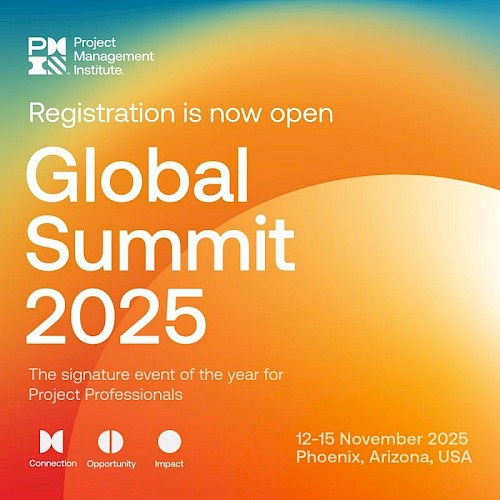
Results are finally out: global research survey on AI in project management
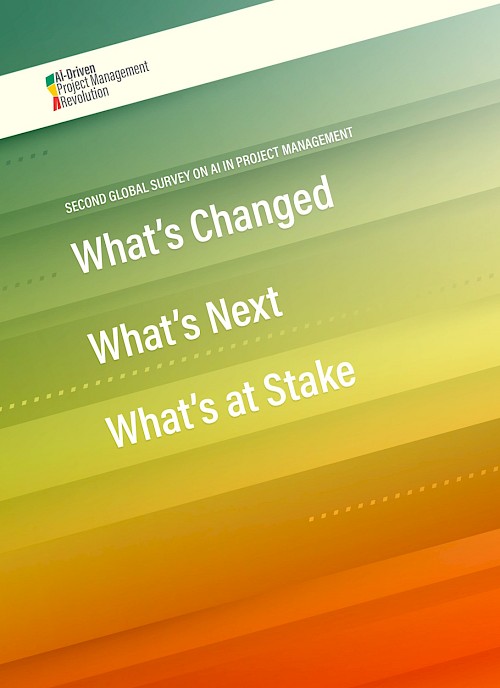
I am proud to share with you the results of our Second Global Survey on AI in Project Management, developed together with Antonio Nieto-Rodriguez.
This white paper is free to download and published under a Creative Commons license because we believe that advancing knowledge in this field is a collective effort. It’s our opportunity to contribute to the development of project management in the age of AI.
Some of the insights that emerged:
- Familiarity with AI in project management has doubled in just two years.
- AI tools are moving from experiments to mainstream adoption.
- The most significant gains are in scheduling, risk management, and forecasting.
- Nearly half of organizations report cost reductions, and one in four has realized over $250K in ROI.
- Barriers are shifting: the challenge is now more cultural and ethical than technical.
- By 2028, 42% expect over half their portfolios to be managed with AI copilots.
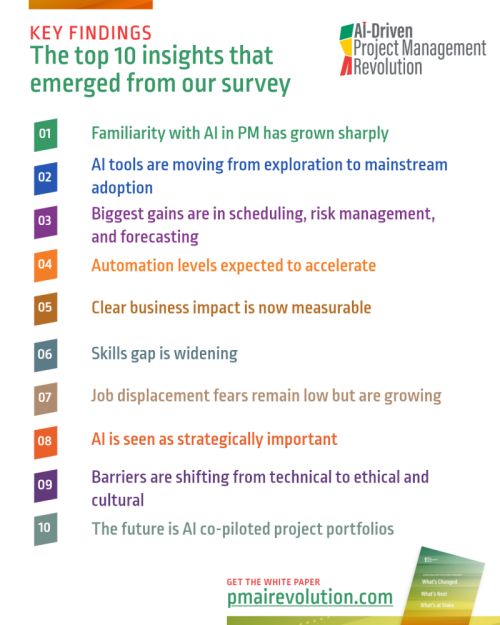
The momentum is undeniable: AI is no longer optional in project management—it is becoming a foundational element.
Download the full report.
Finally, I would like to express my gratitude to those who supported us on this journey and to the 874 respondents who shared their insights to help build the report.
Let’s shape the future of project management together.
Do not Miss our December AI Masterclass!!
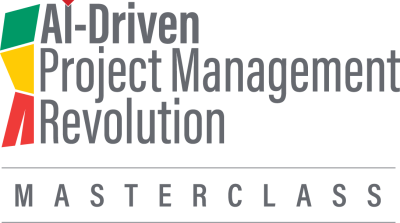
Another super exciting update: our 9th edition of the AI-Driven Project Management Masterclass is coming this December 15 and 16.
This highly interactive experience spans two dynamic sessions, where you’ll work through hands-on exercises, real-world case studies, and practical techniques that will elevate your AI-driven project management skills.
If you’ve been thinking about advancing your skills, earning a recognized credential, or connecting with a global network of AI-driven project professionals, now is the perfect time. Let’s finish the year strong and enter 2026 ready to lead the next generation of projects.
Registrations are open at https://learn.pmairevolution.com
Follow me on Social Media: LinkedIn, Instagram, and YouTube
In the past, some people reached out to me complaining that I did not accept their connection request on LinkedIn. I know that this could be frustrating, but it is not my fault :)
LinkedIn has a limit of 30,000 connections, and right now, I have almost 4,000 pending invitations that I simply cannot accept.
However, I want to remind you that all my networks are open. It means that anyone who follows me can reach out to me by message and see my posts, articles, videos, and newsletter. You can also send messages directly to me.
And if you’d like to connect beyond LinkedIn, I’m also active on Instagram, where I post videos, more personal content, behind-the-scenes, and more interactive discussions. On YouTube, my focus is on educational videos and more long form content explaining project management and AI concepts.
You are more than welcome to follow me there, too.
INSTAGRAM: https://www.instagram.com/rvvargas/
YOUTUBE: https://www.youtube.com/@rvvargas
Your Voice Matters!
You can also read the previous issues here.
If you have any suggestions, comments, or anything else that will help me make it better, please send a note to [email protected]
Please feel free to share this newsletter with your friends, colleagues, and other people you may find will benefit from it.
They can also subscribe to receive it here.
Thanks for your support, and I hope it was helpful to you.
Cheers,
Ricardo Vargas



